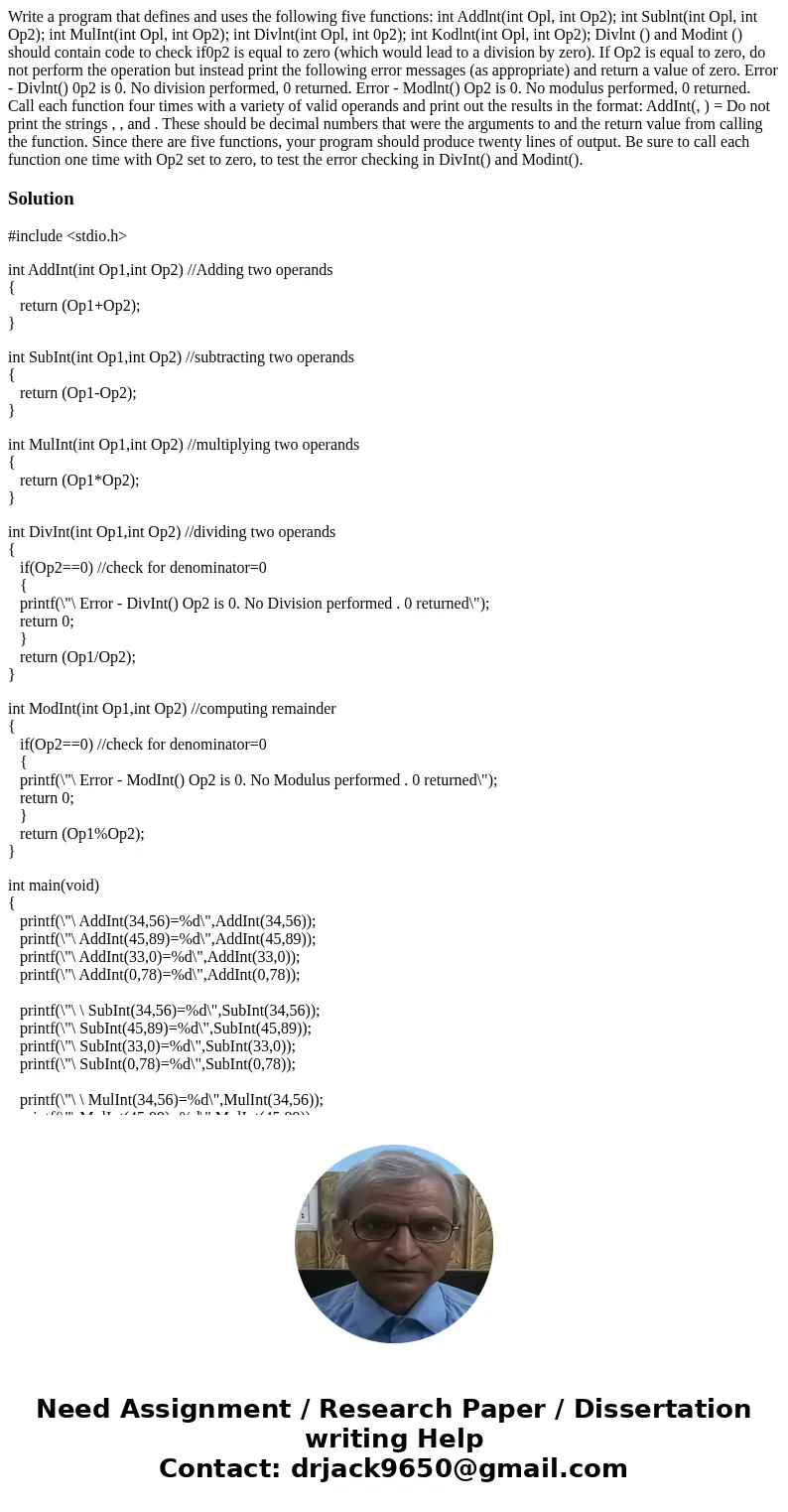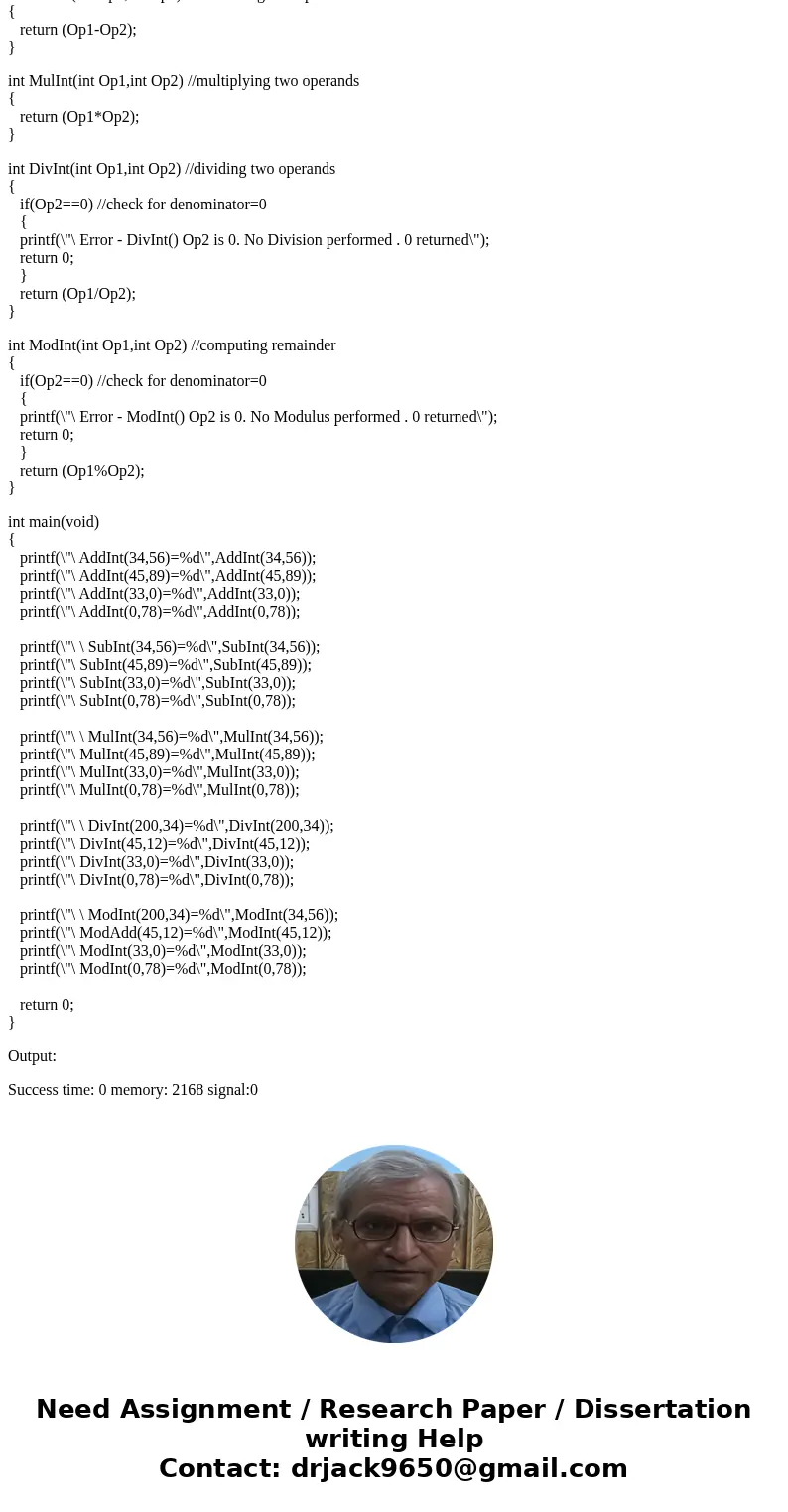Write a program that defines and uses the following five fun
Solution
#include <stdio.h>
int AddInt(int Op1,int Op2) //Adding two operands
{
return (Op1+Op2);
}
int SubInt(int Op1,int Op2) //subtracting two operands
{
return (Op1-Op2);
}
int MulInt(int Op1,int Op2) //multiplying two operands
{
return (Op1*Op2);
}
int DivInt(int Op1,int Op2) //dividing two operands
{
if(Op2==0) //check for denominator=0
{
printf(\"\ Error - DivInt() Op2 is 0. No Division performed . 0 returned\");
return 0;
}
return (Op1/Op2);
}
int ModInt(int Op1,int Op2) //computing remainder
{
if(Op2==0) //check for denominator=0
{
printf(\"\ Error - ModInt() Op2 is 0. No Modulus performed . 0 returned\");
return 0;
}
return (Op1%Op2);
}
int main(void)
{
printf(\"\ AddInt(34,56)=%d\",AddInt(34,56));
printf(\"\ AddInt(45,89)=%d\",AddInt(45,89));
printf(\"\ AddInt(33,0)=%d\",AddInt(33,0));
printf(\"\ AddInt(0,78)=%d\",AddInt(0,78));
printf(\"\ \ SubInt(34,56)=%d\",SubInt(34,56));
printf(\"\ SubInt(45,89)=%d\",SubInt(45,89));
printf(\"\ SubInt(33,0)=%d\",SubInt(33,0));
printf(\"\ SubInt(0,78)=%d\",SubInt(0,78));
printf(\"\ \ MulInt(34,56)=%d\",MulInt(34,56));
printf(\"\ MulInt(45,89)=%d\",MulInt(45,89));
printf(\"\ MulInt(33,0)=%d\",MulInt(33,0));
printf(\"\ MulInt(0,78)=%d\",MulInt(0,78));
printf(\"\ \ DivInt(200,34)=%d\",DivInt(200,34));
printf(\"\ DivInt(45,12)=%d\",DivInt(45,12));
printf(\"\ DivInt(33,0)=%d\",DivInt(33,0));
printf(\"\ DivInt(0,78)=%d\",DivInt(0,78));
printf(\"\ \ ModInt(200,34)=%d\",ModInt(34,56));
printf(\"\ ModAdd(45,12)=%d\",ModInt(45,12));
printf(\"\ ModInt(33,0)=%d\",ModInt(33,0));
printf(\"\ ModInt(0,78)=%d\",ModInt(0,78));
return 0;
}
Output:
Success time: 0 memory: 2168 signal:0


 Homework Sourse
Homework Sourse